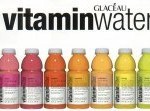Have You Been Sucked In By These Healthy Food Myths?
When it comes to eating well and looking after your body, it’s tough to know who to listen to. Perhaps you see a nutritionist, maybe you follow a favourite health coach or adviser online, or perhaps book learning is your thing. Or maybe you prefer to listen to the well-executed health education hype and marketing of a large conglomerate. No? You’re sure of that, I assume?
In first place for the ‘most glaringly obvious unhealthy ‘healthy’ food award’ is Coca-Cola’s athlete-endorsed Vitamin Water. According to John Robbins of The Huffington Post:
“lawyers for Coca-Cola are defending the lawsuit (which has been brought against them for making false health claims) by asserting that ‘no consumer could reasonably be misled into thinking Vitamin Water was a healthy beverage.’ “
You really do have to give them points for courage, don’t you? Not only do Coke acknowledges that its advertising for a particular product is ‘ridiculous and obviously not true’, but actually admits it publicly and then uses it as a defense for why they and how they’ve sold said product. It’s actually kinda funny. If it weren’t for the fact that untold thousands of poor suckers will have bought into the idea and been guzzling down their Vitamin Sugar Water like there’s no tomorrow, telling themselves they’re ‘re-hydrating’ or ‘replenishing their electrolytes’. Hopefully you weren’t one of them 🙂
Of course it’s not the first time junk food as masqueraded as healthy, and it won’t be the last.
Junk Food You Thought Was Healthy
- Peanut butter. I know. Tears. I could easily down an entire tub of the stuff if you give me half a chance (there’s the first problem), but these days I’ve switched to almond or cashew butter. Peanuts are actually a legume, not a nut, and they inherently contain a type of fungus.
- While we’re on it – legumes. Not awesome. Legumes contain anti-nutrients; substances that latch onto real nutrients and drag them out of your body. They are also difficult for your body to digest due to their starchy coats.
- Whole-grains. Whole or processed, grains are NOT your friend. Our bodies don’t know how to cope with them, given as how they’re relatively new in the span of our evolution. They also contain anti-nutrients, are highly allergenic, and often create insulin imbalances which – when taken to the extreme – lead to hypoglycemia and obesity.
- Soy. No no no! The soy that we know as soy is nothing like soy in its natural state, and it is highly estrogenic. Soy beans also contain anti-nutrients! This wreaks havoc with your hormonal system, and has been correlated with increased duration of menstrual cycle and increased risk of every type of cancer. Soy also naturally lowers the libido and fertility. This is a great article on soy, whole-grains and legumes. I just found it while writing this article, but – as you will know from reading this blog – was already very much on board with that way of thinking.
- Low-fat dairy. First off. The difference between full and low-fat dairy is around 2%. That should be ’nuff said. But the reason why I’d go so far as to say low-fat is unhealthy is because stripping the natural nutrition from a food (any food) makes it tough for your body to recognise and effectively digest. This can lead to gut irritation, bloating and stomach upsets, and food intolerance.
- Margarine, artificial sweeteners, textured proteins, low-fat foods in general. One of my favourite quotes from Michael Pollan, author of the brilliant book Food Rules: An Eater’s Manual, is “never eat anything pretending to be something else”. Don’t you love it?
Have I missed anything? Please leave a comment!
\


Good write up Kat……..CANOLA OIL is something else that came to mind. I just saw a poster on the wall of a fast food place the other day trying to sell how healthy it is. So I just looked it up because I had heard bad things about it…..and wow…………you could do a whole blog just on what I read.
Yes! explain “canola” oil. my understanding is that it is from the canola plant (which is now found to be surviving in California because it’s genetically modified and can resist the dry/arid temps) – but really, i don’t think it’s nutritional value is even close to that of olive or coconut or flax or even grapeseed…
Bummer about the legumes – I really like black beans. I’ve heard boiling them can cancel out some of the anti-nutrient effect – but if we’re sticking to the raw theory i guess if you have to cook something to death – it’s not actually that nutritious. Are beans really that bad?? What about soaked the night before? – here i go, doing exactly what your typical “health conscious” person does to maintain their comfort foods 😉
My push right now is for people to back off GRAINS and SOY – even with my mom its a never ending battle.
Hmmmm … certainly soaking grains, legumes etc (and nuts) helps rid them of phytates and other anti-nutrients. Actually, regarding cooking, Charles Poliquin recommends cashews and almonds be roasted not raw, as the roasting kills anti-nutrients. So I guess I have to go partially back on what I’ve said about eating food in it’s natural state! There are some good arguments that we’re adapted to eating a partially cooked diet.
Regarding canola oil, the truth is I don’t know much about it. I’d love to hear from someone who has researched it. I believe it’s at least partially hydrogenated, which is definitely no good thing. As a general rule I steer clear of typical vegetables oils such as canola, corn, sunflower. Brenda perhaps you could chime in there?
I haven’t seen any research on this, but I don’t see how it can end well…
In many parts of the US, including where I live, it is illegal to sell (and often to give away) any unpasteurized eggs or dairy. Because we need friendly bacteria, many many Americans suffer from very poor digestion as a result of the 100% pasteurized diet. So now the trend is to pasteurize eggs and dairy, then replace all the just-killed bacteria with laboratory-grown bacteria.
I just see so many ways this could go wrong… *sigh*
@HedgeMaze I’ve heard of that. Terrible. I can’t believe they’ve made it illegal – even at Farmers Markets?
Oh Hi again…….I have read bit and pieces about Canola Oil in many of my nutrition books. I mostly remembered that it is really Rapeseed Oil and they called it Canola Oil because it comes from Canada and that name sounds much nicer……I just knew it wasn’t suppose to be good. So I did do a little research the other day since I was shocked to see that poster up. Here is a section on one website (there were many), that put down Canola Oil. If this is more info than you wanted I’m sorry.
The Straight Dope on Canola Oil
We’ve all been told at some time or another that canola is one of the healthiest oils on the market. Canola, which is an amalgam of the words “Canada” (whence it originated) and “oil,” is actually derived from the rapeseed, a member of the mustard family which is generally unfit for human consumption and was once more commonly used as a potent pesticide and lubricant, among other things. Chemically, canola breaks down at 5% saturated fat, 57% oleic acid, 23% omega–6, and 10–15% omega–3.
The reason canola is particularly unsuited for consumption is because it contains a very–long–chain fatty acid called erucic acid, which under some circumstances is associated with fibrotic heart lesions.
Sally Fallon, author of Nourishing Traditions, notes that the omega–3 fatty acids of processed canola oil are transformed during the deodorizing process into trans–fatty acids. She relates that one study indicated that “heart healthy” canola oil actually created a deficiency of vitamin E, which, as many of us know, is essential to our cardiovascular health. And on the practical side of things, canola isn’t that good either. Because of its high sulphur content, it goes rancid easily, and baked goods used with the oil develop molds rather quickly.
It has been very much in vogue in healthfood circles to praise canola oil as very healthy oil — high in polyunsaturates, while condemning tropical oils such as coconut or palm oil as being saturated and unhealthy.
The high praise for canola is propaganda put forth by the Canadian government because “canola,” a hybridized rape plant, is one of that nation’s chief export products. Rapeseed oil contains toxic erucic acid. Canola has much less erucic acid in it.
Healthfood store operators parrot the hype without checking any facts. Consumers search out various products with canola oil in them because they believe this is somehow much healthier than other oils. All foodgrade canola, including the varieties sold in healthfood stores, are deodorized from its natural terrible stink with 300 degree F. high–temperature refining. You cannot cook a vegetable oil at that temperature and leave behind anything much edible.
Research at the University of Florida– Gainsesville, determined that as much as 4.6% of all the fatty acids in canola are “trans” isomers (plastic) due to the refining process. Contrary to popular opinion, saturated fats, especially those found in coconut oil are not harmful to health, but are important nutrition. There are no trans isomers in unrefined coconut butter, for example. This refers to many published research papers by Mary Enig, Ph.D. that refutes all the establishment propaganda condemning saturated fats.
@Brenda thanks so much for that. A lot to read in a comment, but well worth it!
I don’t necessarily disagree with what you are saying here, but I think you owe it to your readers to cite your sources for your statements. Where are you getting your information from please.
@ Faye – in some ways I think it’s good to have a break from quality supps because it gives that ‘proof’ of just how well they were working!
@ Damien – thanks 🙂
@ Adam – which elements are you referring to? Much of what I write and believe is based on clinical experience, along with day to day research and education. I tend not to get too caught up in science (which is why I always say ‘in my opinion’, or ‘in my experience’ because a) I read a lot and don’t have the time nor the inclination to note down every reference, b) I believe something if and when it works for myself and my clients, not just because ‘science says so’, and c) I’m a blogger and health coach not a research analyst! Having said all that if you let me know which parts you’re questioning I’ll see what I have for you.
Great post! I often find people trying to be very healthy and jumping on trends without ever doing any research. How many protein bars, health drinks full of sugar, and reduced fat or enriched foods can we stomach before our body is out of balance.
You will get the required dose of Vitamin D from sunrays exposure. Using sunblock prevents anyone from converting Vitamin D towards active metabolite that one’s body needs. There are supplements also available that can give you the required dosage, therefore helping you avoid symptoms like depression.
Great point. Sunscreens have been said to block around 96% of Vitamin D absorption, and it’s a key factor for weight gain, poor bone density, and many other grave health concerns. I use Poliquin D3 twice a week in a high dose.